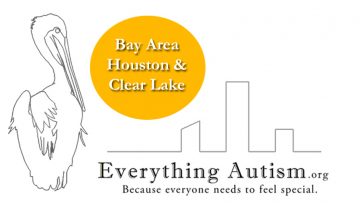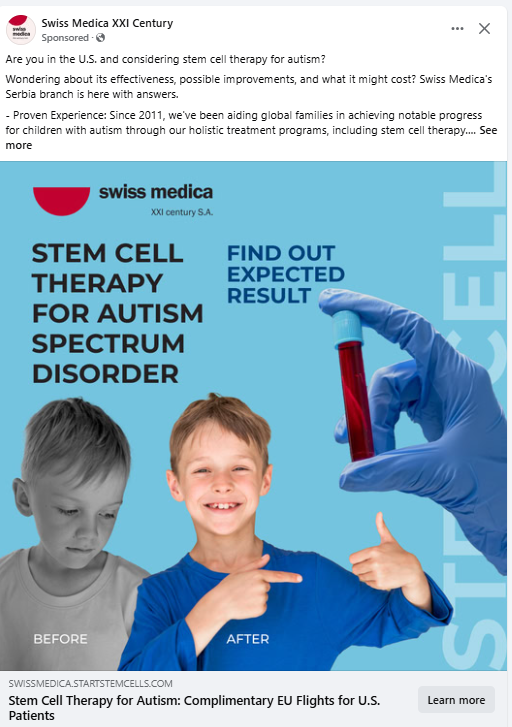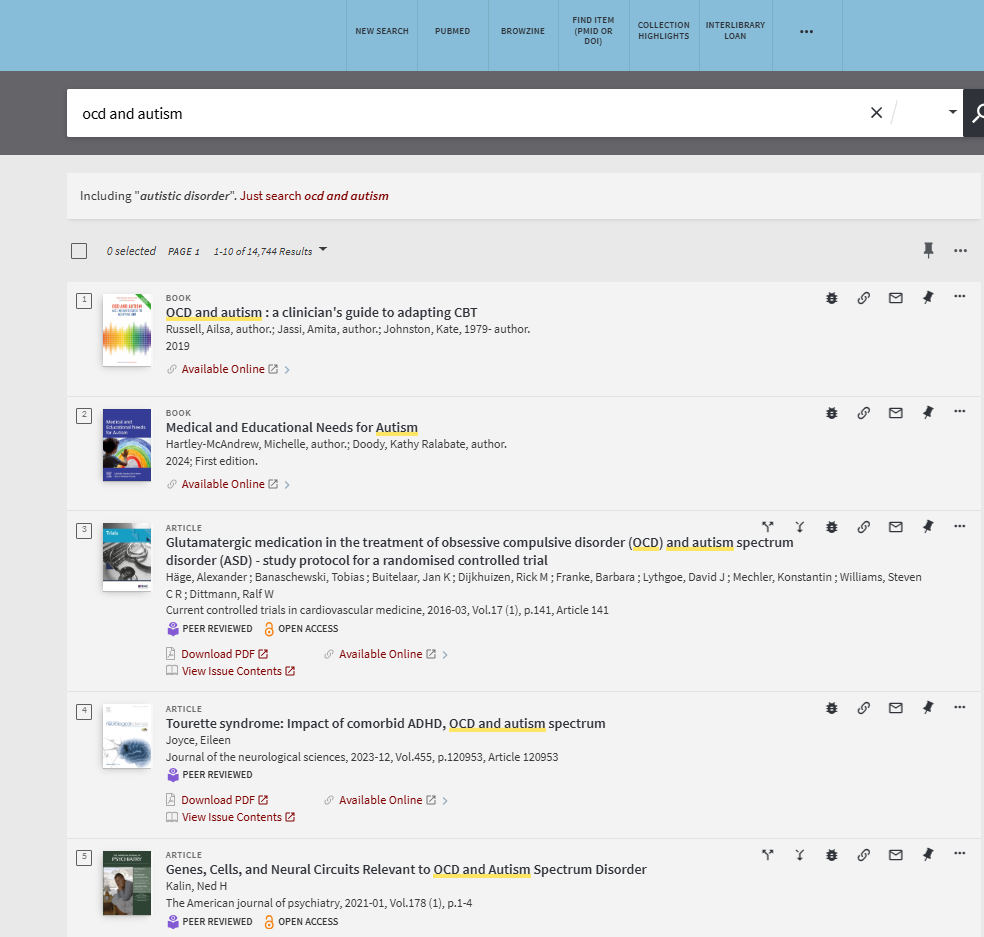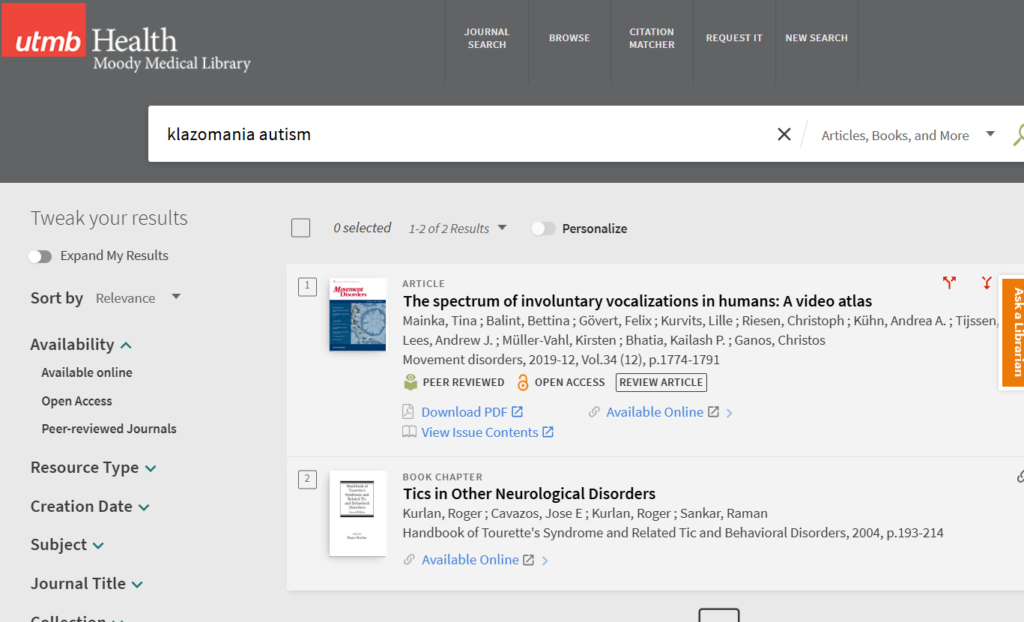- EverythingAutism.org is a parent-driven resource guide for parents of kids, teens and adults with autism in the Clear Lake area of Houston. We welcome your submissions! Have a provider or resource you want to share with other parents, feel free!
Medical Research Libraries in Houston for ASD and Related Disorders
|
As we all know, autism is a “spectrum disorder,” which means, ultimately, that even after all these years, no one knows all that much about it. Experts still do not know if it is one disease or many; if it is environmental or genetic, or some combination; whether the behaviors are neurological or psychological (that is, what parts are amenable to therapy); or if some kids can be recovered through “early intervention” (indeed, no one really knows the answer to this, even after all this time!). Specialists who know anything are really hard to find. Many of us have traveled out of the city or even out of state to get help for our kids. Years ago, there were DAN! doctors, some of whom recommended highly unethical treatments—e.g., toddlers were placed on strong antifungals for yeast, a supposed culprit of their autism; then, it was gluten and casein-free diets, and bizarre theories about “leaky guts”; then, there were harsh chelation drugs administered for presumed mercury poisoning from vaccines or the air, another awful trend many kids were subjected to; then, it was stuff about the “methylation” pathway, with bogus snake oil supplements uniquely formulated to cross the blood brain barrier and improve methylation; then, costly and painful B12 injections at biweekly office visits; then sessions in bariatric chambers become popular, not cheap, and also not efficacious. Again, there was the vaccine scare with the measles vaccine—and then all vaccines—blamed for autism, despite study after study showing that there was no connection. These days, people are experimenting with “cranial magnetic stimulation” . . . sadly, electroshock therapy is back. Elon Musk started a company called Neuralink which specializes in implanting the brain with chips and electrodes, which Musk says could potentially cure autism. It breaks my heart. Years ago, a neurologist at the UC David Mind Institute wanted to put my then four-year-old nonverbal son on an experimental Alzheimer’s drug, and when I told him no, he berated me, screaming, “You want to wait until he’s five and not talking!” (I think he got his license revoked for experimenting on kids with Prednisone and a child died.) What made me especially leery of that neurologist, aside from his high pressure tactics, was that the source of funding for his experiments came from the pharmaceutical industry—which is not uncommon, really. Even after 18 years, memantine is still being investigated as an effective treatment for people with autism and/ or OCD, but no one seems to know anything conclusive about its effectiveness yet, which makes me think it probably isn’t. I know someone who knows someone who went to Mexico for stem cell treatments not available or approved in the US. In my Facebook feed, I often get advertisements from Swiss Medica (in Serbia) for stem cell therapies to cure autism:
So far, no one has been cured by such costly and painful (because they need to extract bone marrow) stem cell treatments. I say, as a parent of an autistic child, it is always good—and necessary—to have access to a good medical library to look at the research. To this end, I want to let people know about a fantastic resource in Houston they might not know about: The Texas Medical Center Library. This is a medical library in the heart of the Texas Medical Center. If you go to the TMC Library’s home page and conduct searches there, you will be able to pull up all kinds of scholarly articles on specific conditions which you will not find merely by Googling. It’s better than PubMed. In my case, I tend to search “OCD and autism” from time to time, to see what’s new, just like this:
Granted, you will not be able to access the full text of many of these books and articles without the necessary credentials (an institutionally-issued sign on) or a willingness to pay about $50 per article to get you through a paywall. But with many articles, I would say a good 60%, you can get to full text if the article is designated “Open Access” (look for the orange open lock icon, as with the last citation above). Through Google Scholar, you can also often find reprints of the same article in open access institutional repositories. That’s what I do. I have often had good luck emailing the author and requesting the article, or getting it through ResearchGate. Sometimes it is in some institutional repository indexed by Google Scholar. If you want to take your research to the next level, and you have time during a work week to actually go down to the Texas medical center (never fun, parking is so hard!), you can also go inside the TMC Library and get guest credentials to access full text of all of these articles. I think the TMC Library is an underutilized resource which more parents of special needs kids should know about, even though it isn’t a “public” library (they say they are an independent library). If you live more toward Galveston, as I do, there is a UT medical research library which is also very good, UTMB’s Moody Medical Library. Like the TMC Library, you can search in their search box (their “public access catalog”) / discovery tool to see if there are articles there which would make the trip down there worth your while. Inside the library, you should be able to access full-text of everything. The UTMB Library is open to unaffiliated researchers both during the week and on the weekends, where the TMC Library is only accessible to non-affiliated researchers during the week. Parking is also difficult and costly at the TMC Library, so I would opt for the Moody Library just for the convenience factor.
Occasionally, I will explore scholarly publications to see if there is an expert I might consult with now or in the future, a systematic review or a clinical trial, just to give me insight or a ray of hope. There have been promising studies with CRISPR and mice models where the mice, even adult mice, have been “cured” of some genetic defect associated with autism through genetic engineering. If you want to monitor articles published on CRISPR and autism, or follow some particular genetic condition, medical libraries are for you. If you go to inside of the library, there will be additional resources which are not well indexed by the library’s discovery tool. Going to specialized research databases and conducting searches there is often far more productive than going through the library’s single-search discovery engine. You can always ask a librarian for assistance. |




